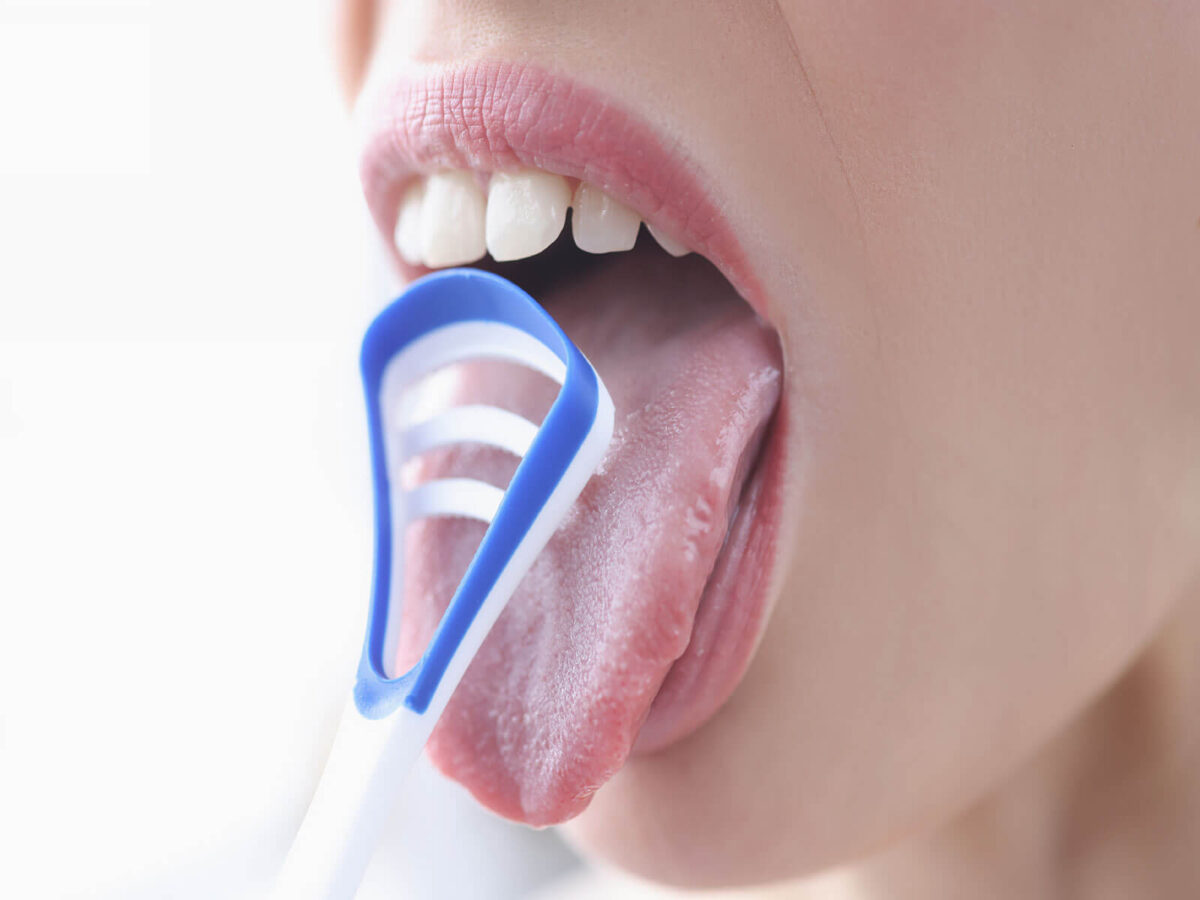When it comes to dental hygiene, many people tend to focus solely on brushing and flossing while overlooking a critical aspect of the tongue. The tongue plays a significant role in our oral health, and incorporating tongue cleaning into your daily routine can lead to not only fresher breath but also a range of other benefits.
In this blog, we’ll explore the often-overlooked advantages of tongue cleaning and how it can contribute to a healthier mouth. In this article, we will learn about the oral benefits of tongue cleaning and its long-term advantages.
The Importance of Tongue Cleaning
Your tongue serves as a breeding ground for bacteria, dead cells, and food debris, all of which can contribute to bad breath and various oral health issues. While brushing and flossing target the teeth and gums, tongue cleaning addresses the bacteria that accumulate on the tongue’s surface. This simple practice can make a remarkable difference in your overall dental hygiene.
Fresher Breath:
One of the most immediate and noticeable benefits of tongue cleaning is a fresher breath. The tongue harbors bacteria that produce sulfur compounds, leading to bad breath. Regular tongue cleaning effectively removes these bacteria, helping to maintain a more pleasant and lasting freshness in your mouth.
Preventing Plaque Buildup:
Tongue cleaning not only combats bad breath but also plays a preventive role in plaque buildup. The bacteria residing on the tongue can contribute to the formation of plaque on teeth, thereby increasing the risk of cavities and gum disease. By incorporating tongue cleaning into your daily routine, you can reduce the overall bacterial load in your mouth, promoting better oral health.
Enhancing Taste Perception:
Keeping your tongue clean can lead to a better sense of taste. The taste buds on the tongue can become covered with a film of bacteria, dead cells, and debris, which dulls your ability to taste food properly. Regular tongue cleaning helps remove this film, allowing your taste buds to function optimally and enhancing your enjoyment of flavors.
How to Clean Your Tongue?
Cleaning your tongue is a simple process that can be easily incorporated into your daily oral care routine. Use a tongue scraper or the back of your toothbrush to gently remove debris from the back of your tongue to the front. Rinse the scraper or brush after each pass to remove the collected material. Be sure to be gentle to avoid causing any irritation to the tongue.
Choosing the Right Tongue Cleaning Tool
To maximize the benefits of tongue cleaning, it’s essential to choose the right tool. Tongue scrapers come in various materials and designs, so find one that suits your preference and ensures effective debris removal without causing discomfort. Some toothbrushes also have built-in tongue cleaners on the back of the brush head, providing a convenient two-in-one solution for oral care.
Establishing a Consistent Tongue Cleaning Routine:
Maintaining good oral hygiene requires consistency. Make tongue cleaning a daily habit, just like brushing and flossing. Set a specific time, whether it’s in the morning or before bedtime, to incorporate tongue cleaning into your routine. By making it a habit, you’ll enjoy the long-term benefits of improved oral health and fresher breath.
Summing It Up
In the pursuit of optimal oral health, don’t underestimate the importance of tongue cleaning. Beyond providing you with fresher breath, regular tongue cleaning contributes to a healthier mouth by preventing plaque buildup and enhancing your taste perception.
With just a few extra minutes added to your daily oral care routine, you can enjoy the holistic benefits of tongue cleaning and smile confidently, knowing you’re taking comprehensive care of your oral health.


